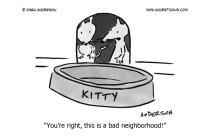Delivering on promised quarterly earnings and spurring business growth are the most distinct ways by which to measure a company’s value.
Or are they?
Social value is not seen as part of the capitalist equation, but more and more it is integrated into the business vision, and a non-negotiable trait of a company that hopes to hire the best of the best employees who are conscientious about making a difference. Professor Rebecca Henderson of Harvard Business School says businesses worldwide are invaluable for creating social value because they are innovative and have scale—they have the power and impetus to motivate people, change behaviours and ways of thinking.
However, social value is often deemed a casualty in light of short-term losses. In fact, it usually takes capital to introduce operational changes, and takes up time that no one has to spare. It involves great risk, and most transitions do not bloom a profit in the first quarter, or even second, third, or fourth. There is no question, transition is not easy. As Professor Henderson states, “We just have to believe the change [it] is needed.” Transition is not a matter of growing smoothly but rather “..painfully advancing a bloody frontier where there will be mistakes and failures.”
For Mission, the foundation of our existence and our social value are rooted in, simply, reducing waste. We began with a global problem that needed a solution and found opportunity. Lowering initial consumption of energy seemed like a good place to start. Mission creates innovative products with a longer life cycle and engages with more sustainable power suppliers. We motivate our clients with the idea that big changes start small. We ask: “What are the easy things we can do?” Mission makes it easy by putting a more environmentally friendly light bulb on the market for business and home—changing one or two light bulbs in every home has the potential to make great global impact.
Imagine, for example, if half the businesses around the world chose not to print their brochures and other promotional materials? One mindful decision everyday, among a multitude of choices, is foresight in itself; however, Professor Henderson reiterates that it takes four things to enable transition:
- Firms must be emotionally committed. They must believe inside and out that there is no other way forward than one that incorporates their social value vision.
- Firms need a strong vision and hard-headed realism—there is a chance shareholder expectations and market value may suffer upset or shift.
- Firms need to inject creativity. Our business models are predicated on the notion of ROI—no business survives long without some profit. However, how could we change accounting structures or re-write governance to create a win-win ROI scenario in which we are doing the right thing and making a profit?
Professor Henderson suggests that maybe to “decarbonize the economy,” “We must fall a bit before we climb again.” On a parallel personal journey, there is nothing more true—when we can breach the lip out of a darker place where there existed struggle, failure, and arduous work, we are more capable, stronger, able to endure anything. And what is responsible treatment of the planet on which we live if it is not personal?
About The Author

-
Serial Entrepreneur, Technologist and Inventor.
My objective is to develop useful products that have a net positive effect in the lives of those that use them and the environment that we live in.
CEO of Mission LED Lighting Company Ltd.
- 2017.05.24LED factsWhy Are Cars Switching to LEDs if They’re Too Bright?
- 2017.05.09Be green & saveHow to Easily Replace T8 Fluorescent Tubes With LED
- 2017.03.07Build a better future7 Things About Explosion Proof LED Lighting You Should Know
- 2017.02.28Be green & saveWhy We Love LED Grow Lights (And You Should, Too!)





Leave a Reply